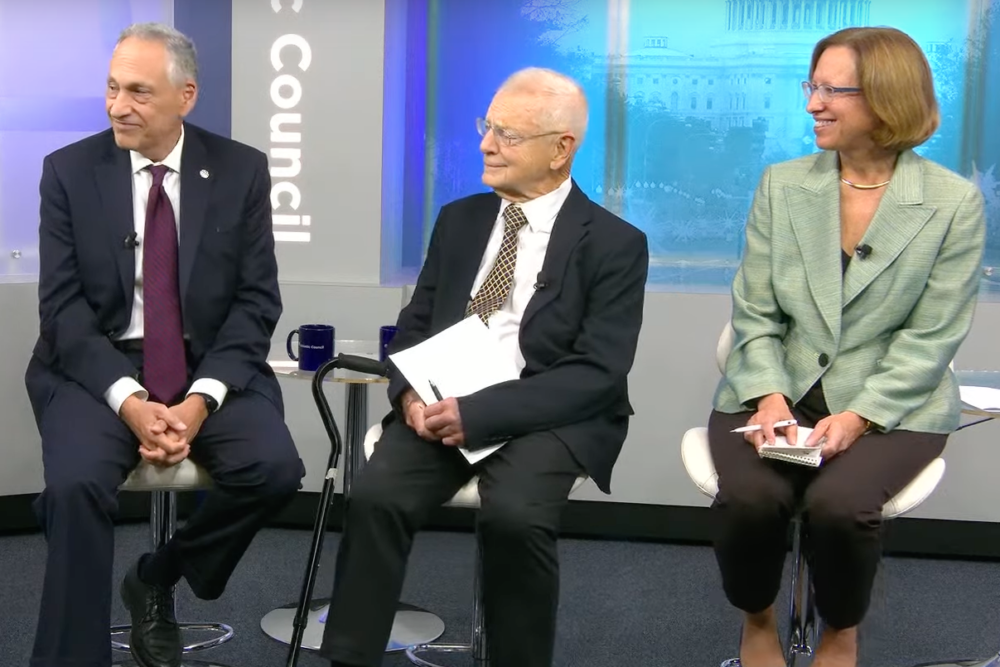
Atomic Pulse
The Nuclear Budget: If you have to ask, you can’t afford it

Two weeks ago, Russia released the first declassified photos of
its new RS-28 Sarmat intercontinental ballistic missile or Satan 2 (a missile
reportedly capable of destroying
Texas). Likewise, earlier this year, the U.S. Air Force released the first
details about its in-development B-21 Raider (a bomber that aspires to be
undetectable to radar and taxpayers).
Both the United States and Russia are in the early stages of
robust nuclear modernization programs to update each leg of their respective nuclear triads—planes,
intercontinental ballistic missiles, and submarines—over the next 30 years. These
new weapons would add to what already are the two largest nuclear forces in the
world.
So how much does it all cost and where does the money go?
Our colleagues at the James Martin Center for
Nonproliferation Studies (CNS) have the answers. They just launched a new
chapter to NTI’s tutorial series: a new tutorial on
the US nuclear budget, highlighting the best numbers available.
The short answer is that the entire nuclear enterprise –
including nuclear forces, threat reduction, missile defense, cleanup and even health
care for workers affected by radiation from the US nuclear weapons programs –
totaled approximately $42.3 billion in 2015.
That number is expected to rise as the Air Force and Navy develop
new missiles, bombers, and submarines as part of the modernization program. Below,
you will see the PROJECTED long-term costs of the nuclear triad:
As noted in our tutorial,
CNS has projected that over the next thirty years, the total cost of
maintaining and updating the triad could reach $1 trillion.
Stay Informed
Sign up for our newsletter to get the latest on nuclear and biological threats.
More on Atomic Pulse

NTI’s Lynn Rusten on the Costly and Potentially Destabilizing Recommendations in the 2023 Strategic Posture Commission Report
Lynn Rusten, vice president of NTI’s Global Nuclear Policy Program, shares her reaction to the 2023 Strategic Posture Report during a panel event at the Atlantic Council.

China’s Nuclear Expansion and Implications for U.S. and Global Security
Amid uncertainty around China’s expanding nuclear program and silence from Beijing about the intent behind the build-up, a new report offers details about China’s nuclear program that suggest significant implications for U.S. and global security.

South Korea’s National Security Debate Goes Nuclear
When it comes to nuclear weapons and the Korean Peninsula, nearly all the attention goes to North Korea, but a public debate is heating up south of the demilitarized zone, with some officials in South Korea asking: Should Seoul pursue a nuclear weapons program, too?
